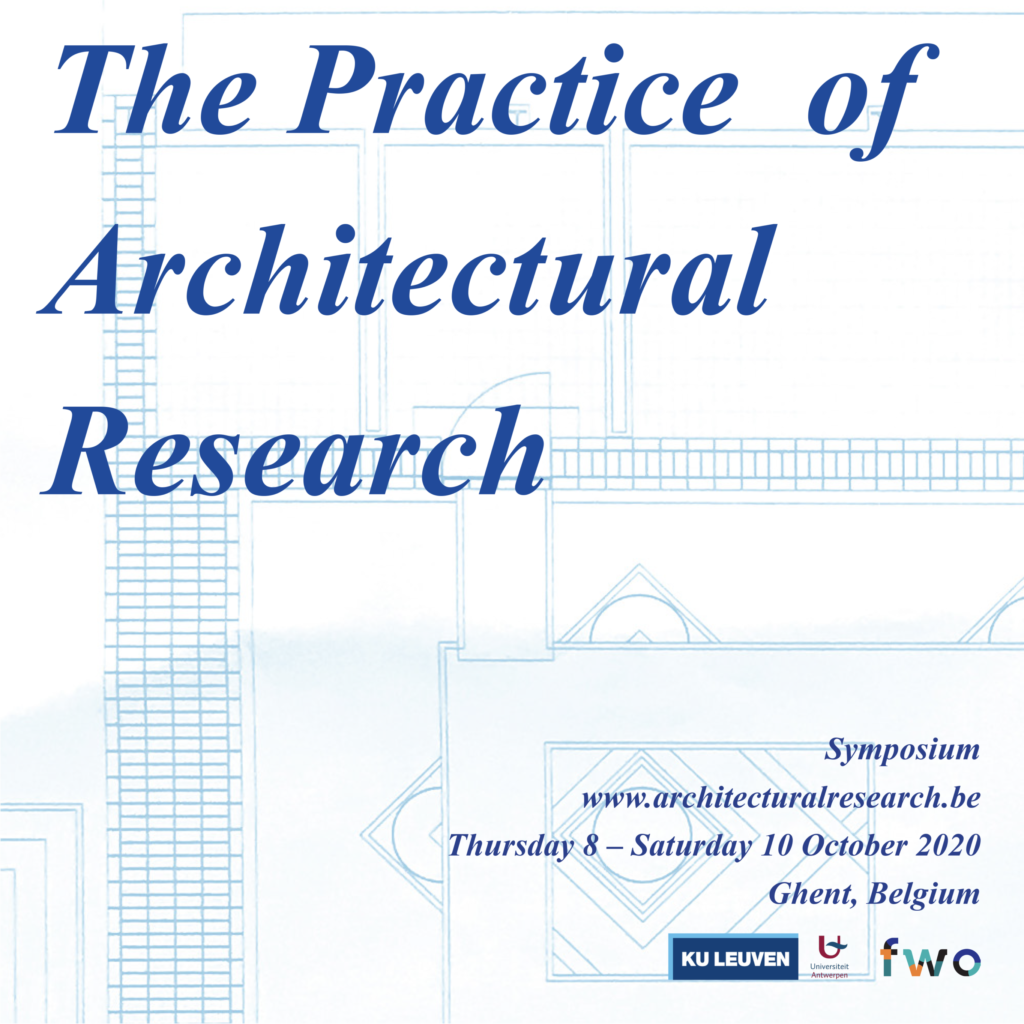From Thursday 8 till Friday 9th, a symposium on the Practice of Architectural Research will take place at KU Leuven Faculty of Architecture, Campus Sint – Lucas Ghent. Part of the symposium will be organized at Roosenberg Abbey by Dom Hans van der Laan. Key note lectures will be delivered by Wilfried Wang (University of Texas at Austin) and Helen Thomas (ETH Zürich). The symposium is initiated by ARP member Caroline Voet and Eireen Schreurs, organised in collaboration with the University of Antwerp. It takes up the challenge to reflect on the role of the practicing architect in academia:
‘Are architects who write a dying race?’ asks Belgian architectural theorist and historian Hilde Heynen. This symposium takes up her challenge to reflect on the role of the practicing architect in academia. Building a critical platform for writing architect-scholars and scholars exploring the relation between architectural practice and culture, the intention is to create new and fecund relationships between the practice of theory and that of architectural production. During the 1960s, academia saw the rise of architectural theory as an autonomous discipline, from which emerged theoretical architectural practice: the discipline of critical architectural theory became ever more divorced from the sphere of production and the world of action, instead defining for itself an autonomous, self-referential intellectual realm. In the 1990s architects working in academia like Frampton, Pallasmaa, Ockman or Mallgrave began to bridge the hiatus between practice and theory, developing analytical research methods that combined ontological research with exemplary buildings. These approaches shared a focus on the classical canon of architecture, the authoritative voice of the architect, and the production of grand narratives. Today, it is valid to question whether this approach is still viable, when the current intellectual climate in which debates around decolonization, material and social agency debate and post-metoo feminist perspectives challenge this canonical approach. Inspired, for example, by the strategies of art history, we are looking for responses to such questions as: can we research architectural practice and theory through an inclusive perspective on its ontology? What could be architecture’s contemporary theories, thought systems and methods? How can this knowledge be relevant for current architectural practice? These questions can also be reversed. What can practicing architects bring to the table in an academic context, when they are researching, drawing and writing? To what extent can a discussion on the tools and methods of practicing architects deepen the academic debate and enter the fields of architectural history and theory? By re-visiting a building through the experience of designing architects, what new readings or versions can be uncovered? More specifically, how can the ‘design knowledge’ of the architect provide relevant interpretations of our built environment? This symposium aims to broaden the scope from research by design, which is usually focused on an architect’s personal practice, towards building, drawing and writing as research activities that actively engage with architectural history and theory. Can ‘design knowledge’ find a more secure position within the academic field as an expertise to develop (critical) history and theory?
The symposium will be organised digitaly, links can be found on the following link: www.architecturalresearch.be

